Internet? – History, Advantages, Disadvantages, and Addressing Schemes
What is Internet?
The Internet is a huge collection of computers all over the world that are connected to one another. These computers are connected through different communication channels like:
- Phone lines
- Fiber optic lines
- Satellites and wireless connections
The Internet is used to find information stored on computers called hosts and servers. These computers used a common protocol called TCP/IP. Each computer connected to the internet can act as a host. A host computer provides information to the people.
To clarify the difference between the Internet and the World Wide Web (WWW), it’s important to note that the Internet is a global network that connects computers and other devices through various communication channels, such as cables, satellites, and wireless connections.
On the other hand, the WWW is a subset of the internet that allows users to access and share information through websites, web pages, and web applications.
The internet is the infrastructure that enables data to be transmitted around the world, while the WWW is a way of organizing and accessing that data.
Advancing technology brings new ethical challenges. The early Internet was created by American research units, universities, and telecommunication companies which is called ARPANET.
It expanded commercially with upgraded links and software and became a global network in the 1990s. Social networking sites enable users to connect and share information.[1]
People can find information about magazines, books, encyclopedias other types of material on the internet. They can get an expert opinion on any topic. They can also communicate with the world community on different subjects. The Internet has turned this world into a global village.
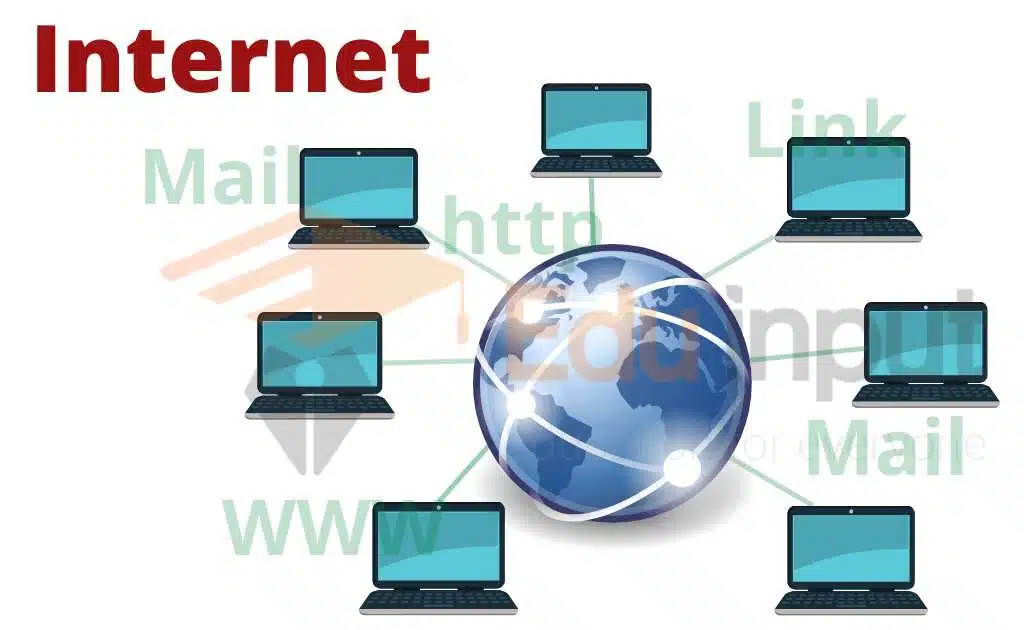
Key Points
- The internet has made the world a global village, enabling users to find information, get expert opinions, and communicate with others.
- The internet’s development began in the 1960s during the Cold War, and DARPA connected computers at different universities and defense companies.
- NSFNET replaced all previous networks in 1989, making the internet available to everyone.
- Internet service providers are connected to larger ISPs that maintain fiber optic backbones.
- Each computer on the internet has a unique address, either an IP address or a DNS addressing scheme.
- The internet provides advantages like access to information, e-commerce, free articles, forums and message boards, news, and online classes.
- The internet’s disadvantages include cybercrime, cyberbullying, online addiction, fake news, and inappropriate content.
History of Internet
The work on the Internet started in the 1960s during the cold war between Russia and America. America wanted to communicate with its Armed forces for sharing information. A computer network of four computers was developed at the start.
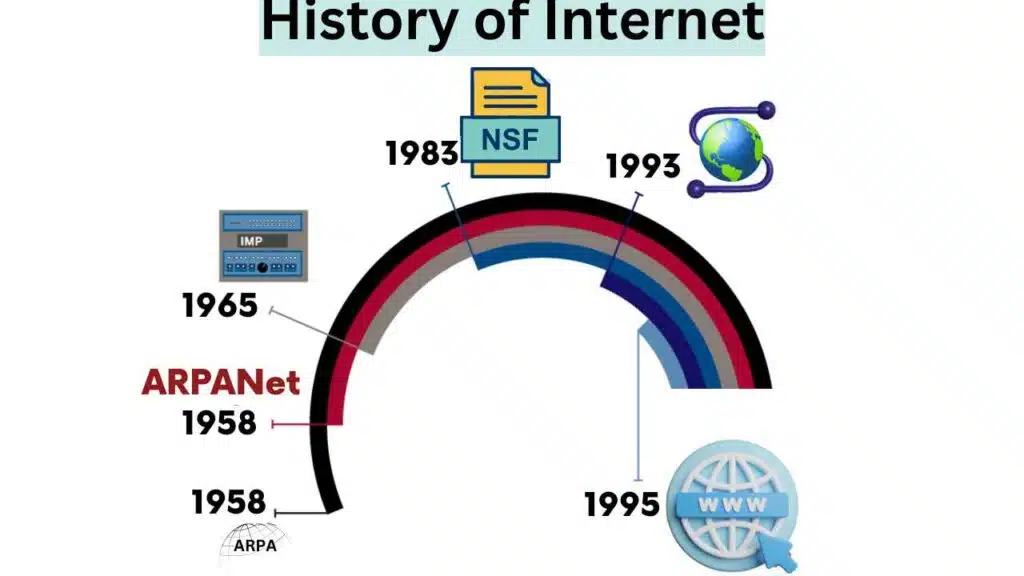
The project was handed over to DARPA and started connecting computers at different universities and defense companies.
Different universities and research organizations also started the development of their own network to share data and information with other people. A few years later, all of DARPA’s networks of universities and research institutes were merged to form the world’s largest network. This network is now known as the internet.
In 1989, all previous networks were replaced by NSFNET of the National Science Foundation. The internet facility was now available to familiar people.
Working of internet
The internet is a collection of millions of computers all over the world. These computers are linked with each other through a computer network. Networks are used by computers to communicate with each other. A personal computer can be connected to the internet service provider’s server.
A computer in a university or business is usually connected to a local area network using a Network Interface card (NIC). The business or university connects its LAN with ISP using a high-speed phone line like T1. A T1 line can handle approximately 1.5 million bits per second. A normal phone line with a modem can handle 300,000 to 50,000 bits per second.
Internet service providers are connected to larger ISPs. The largest ISPs maintain fiber optic backbones for an entire region. The backbone is connected through fiber optic lines, submarine cables, or satellite links. In this way, every computer on the internet is connected to every other computer.
Addressing schemes
Internet addresses are used to access different computers on the Internet. Each computer on the Internet has a unique address This address is used to establish a connection with that computer. There are two types of addressing schemes on the Internet.
Addressing schemes used on the Internet
Here are two types of addressing schemes on the internet
1. IP Addressing
An IP address is a unique number that refers to a computer connected to the Internet and stands for Internet Protocol. This address is a 32-bit number. It consists of four numbers separated by a period. Each number is between 0 and 255. These numbers are known as octets example of an IP address is 127 80.144.30
A server on the Internet has a static IP address. It does not change very often. When a computer connects to the Internet, it also gets an IP address from the ISP. This IP address is used only during the session and is not static.
2. DNS Addressing
An IP address is difficult to remember for users. All servers on the Internet also have human-readable names. It is known as a domain name. A domain name consists of text instead of a number. It is easier to remember a domain name than an IP address
For example, www. search. com is a permanent and human-readable name. It is easier to remember than an IP address. It actually has two parts
- Host name
- Domain
The domain represents the institution that uses the address. The domain names are called top-level domains. The top-level domains are as follows:
| Domain | Type |
| com | Commercial organization |
| edu | Educational institutions |
| gov | Government department |
| mil | Military organization |
| net | Network provider |
| org | Non-profit organization |
Advantages of internet
The Internet provides many advantages. Some advantages of the Internet are given below:
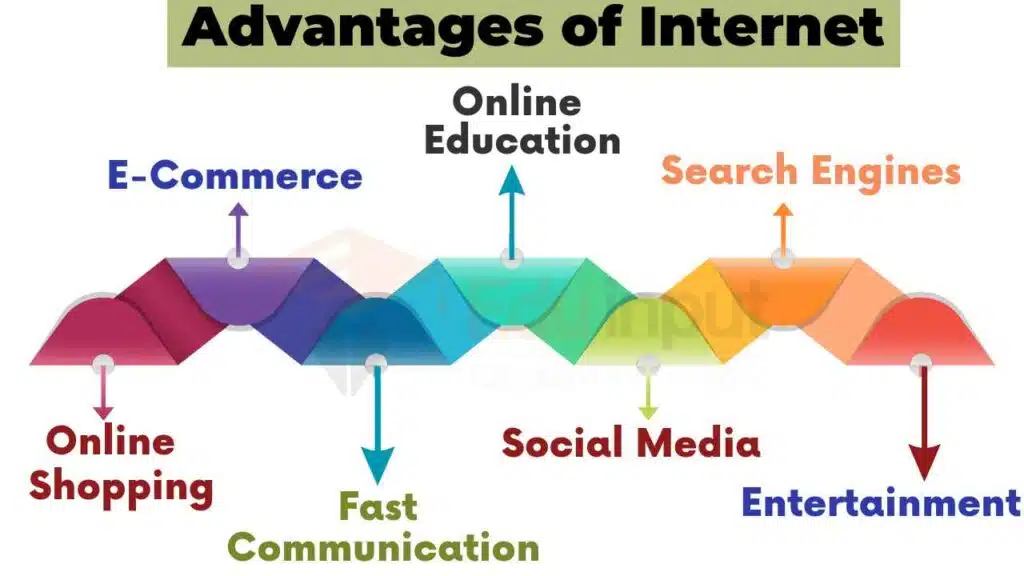
- We can search all types of information on the internet related to study, business, medicine, agriculture, etc.
- The Internet provides the facility for e-commerce.
- We can also search for the result on the internet.
- You don’t need to pay for expensive books or magazines anymore. Instead, you can read articles on the web for free.
- If you’re having trouble with homework or studying for a test, you can turn to forums and message boards online. These websites allow you to communicate with others who may be going through the same thing as you. You can ask questions and get advice from people who understand exactly what you’re going through.
- There are many websites out there that provide breaking news stories. Whether it’s politics or sports, you’ll always be able to keep up-to-date on what’s happening in the world.
- If you’ve always wanted to learn how to draw or paint, you can take art classes online. There are many websites that teach you everything from painting techniques to computer skills. You can learn whatever subject you’d like to learn.
- If you have ever wanted to learn how to play guitar, you can go to YouTube and search for tutorials.
Disadvantages of internet
Although the internet has become an integral part of modern life, it also has some significant disadvantages that should be considered.
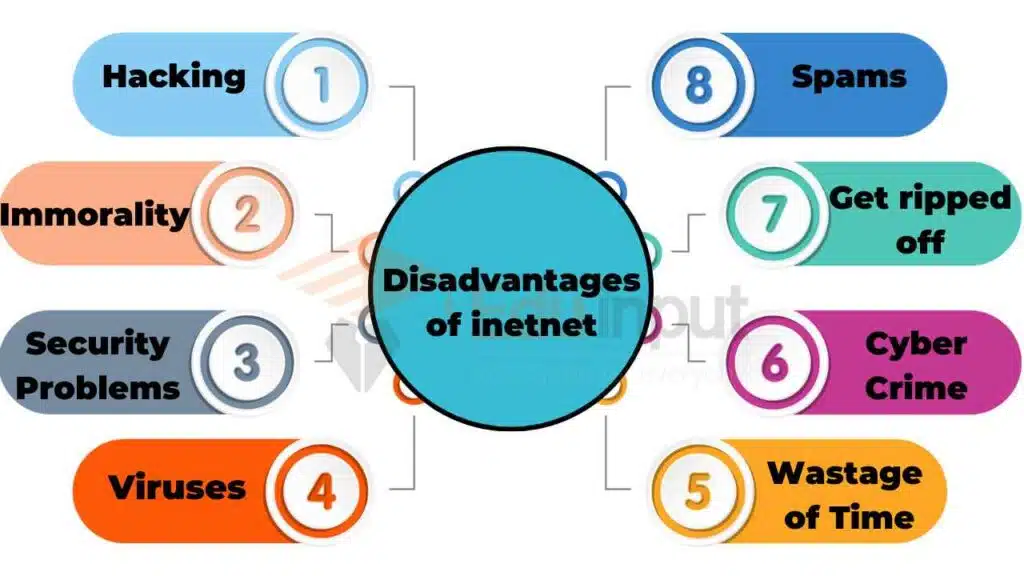
- There are many websites out there that are designed to make money off of people who don’t know any better. These sites may provide incorrect information about products, services, or scams.
- If you read online reviews before buying anything, you should take them with a grain of salt. While some sites have legitimate reviews, others are just trying to make a buck. Read multiple reviews if you want to make sure you’re getting good value.
- When something goes wrong with your product, it’s often time-consuming and frustrating to work with companies that aren’t willing to help. Avoid these situations by choosing only reputable businesses.
- With the internet, your personal information is easily accessible. You might think your email address isn’t important, but if someone wants to spam you with advertisements, they’ll find a way.
- Most websites use links to connect to different pages. But just because a link looks trustworthy doesn’t mean it actually is. Be wary of clicking on unknown links.
- Reviewers may leave fake reviews to increase their own popularity. Make sure you check the credibility of a review site before trusting its opinion.
- Malicious software is being developed all over the world. Hackers can create viruses, worms, Trojan horses, spyware, adware, etc., that can damage your computer or steal your sensitive data. Use anti-malware programs to protect yourself from malware.
Related FAQs
What is the Internet?
The internet is a global system of interconnected computer networks that use the standard Internet Protocol Suite (TCP/IP) to serve billions of users worldwide. It is a network of networks that consists of private, public, academic, business, and government networks of local to global scope, linked by a broad array of electronic, wireless, and optical networking technologies.
What are the features of the Internet?
The Internet was designed to be a resource that would allow users to easily find information on any topic, and have free and open access to that data.
What are the advantages of the internet?
You can find almost anything online
You can save money
You can connect with others
You can stay informed
You can shop anywhere
You can work anytime
You can take classes
What are the disadvantages of the internet?
Inaccurate information
Bad reviews
Poor customer service
Lack of privacy
Unreliable links
Fake reviews
Malware
Who invented the Internet?
Robert Kahn and Vinton Cerf are the inventors of the internet.
How did the Internet start?
The internet is started in the 1960s by the defense department of the UK. The internet was born out of ARPANET, an academic research network that was funded by the military’s Advanced Research Project.


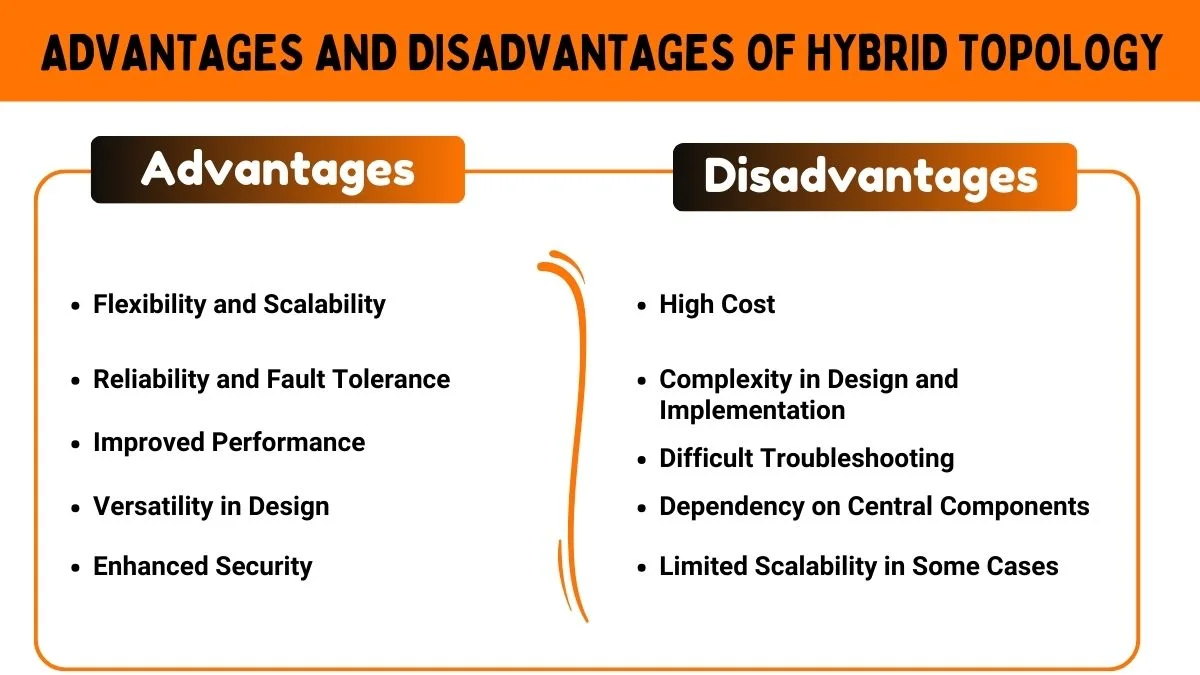
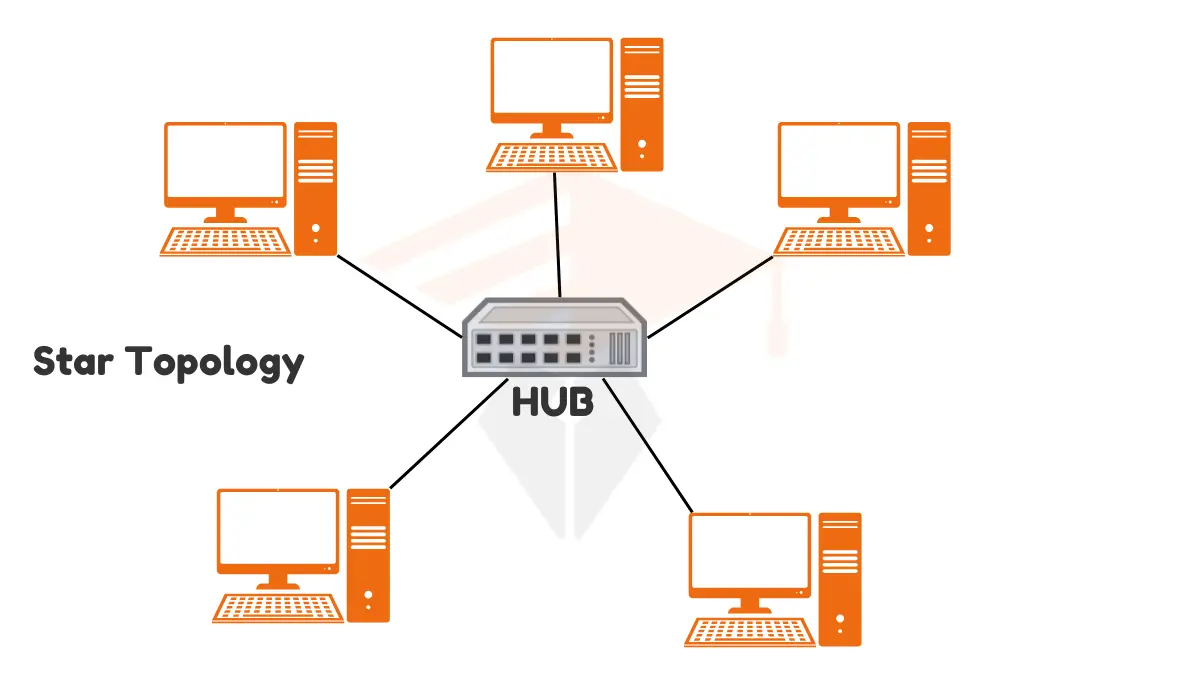
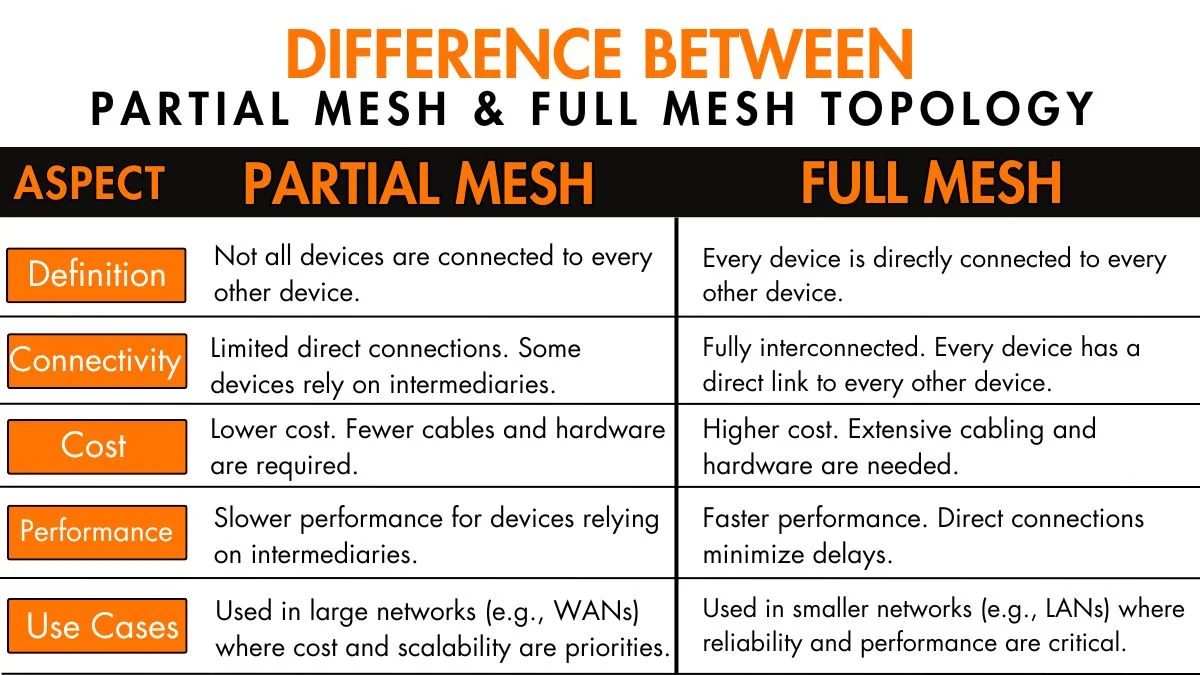


Leave a Reply